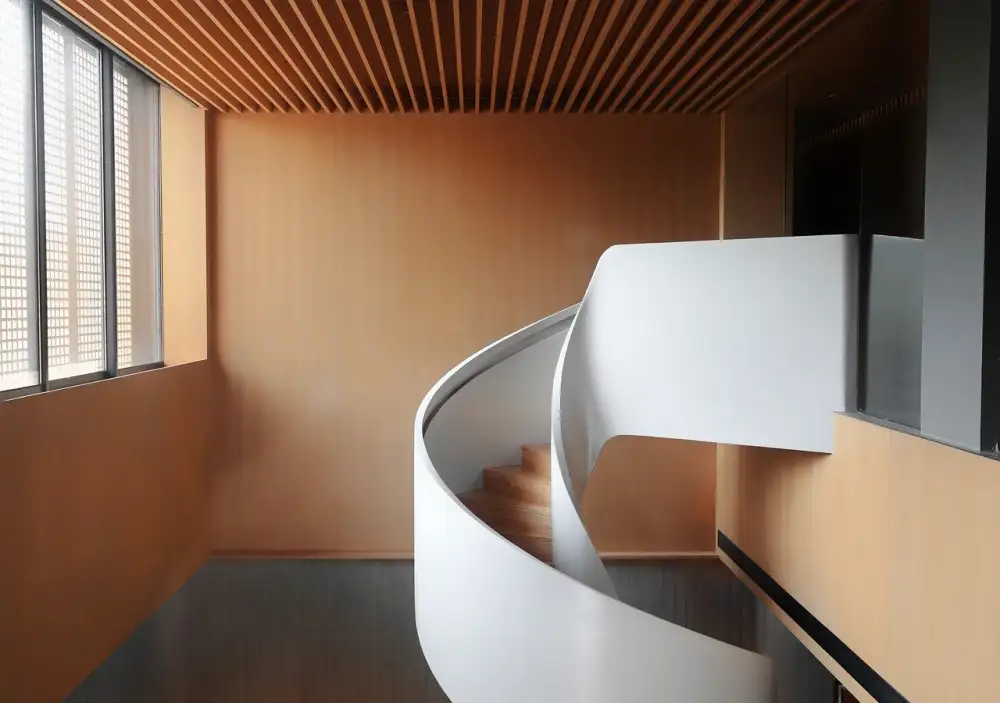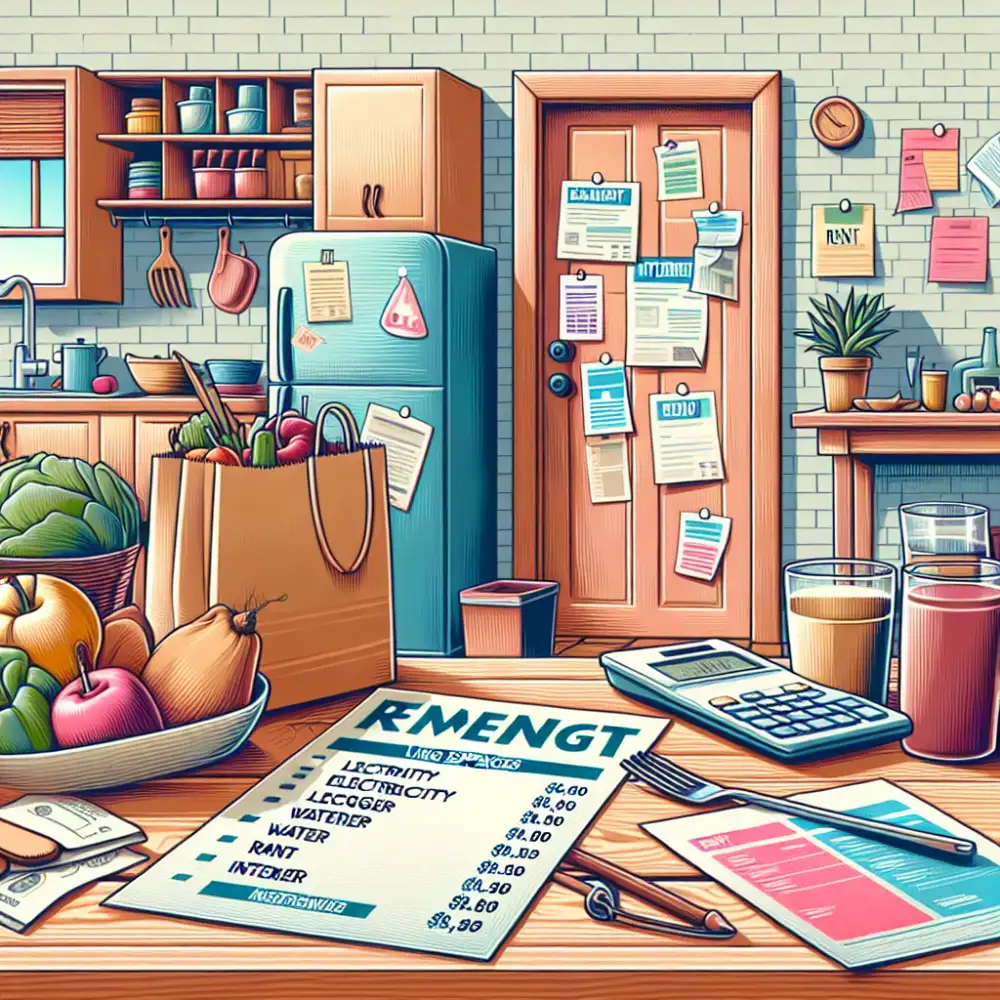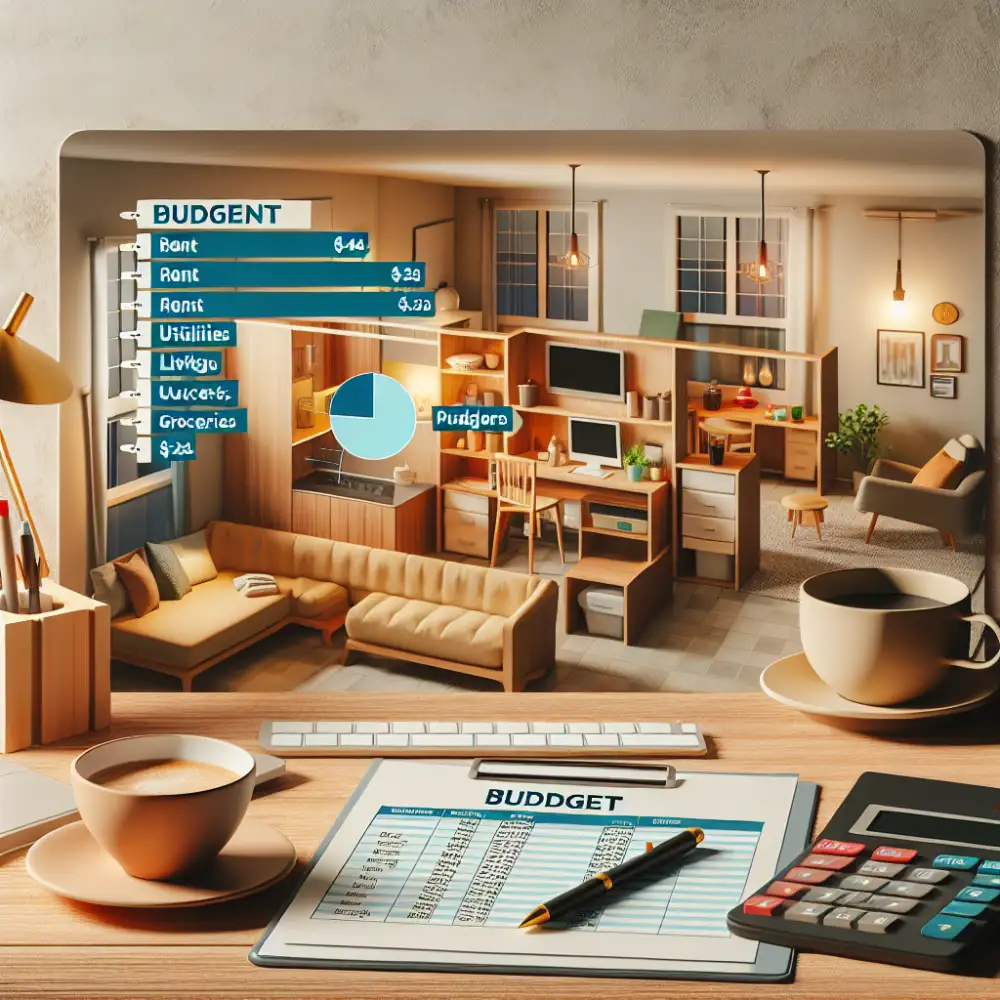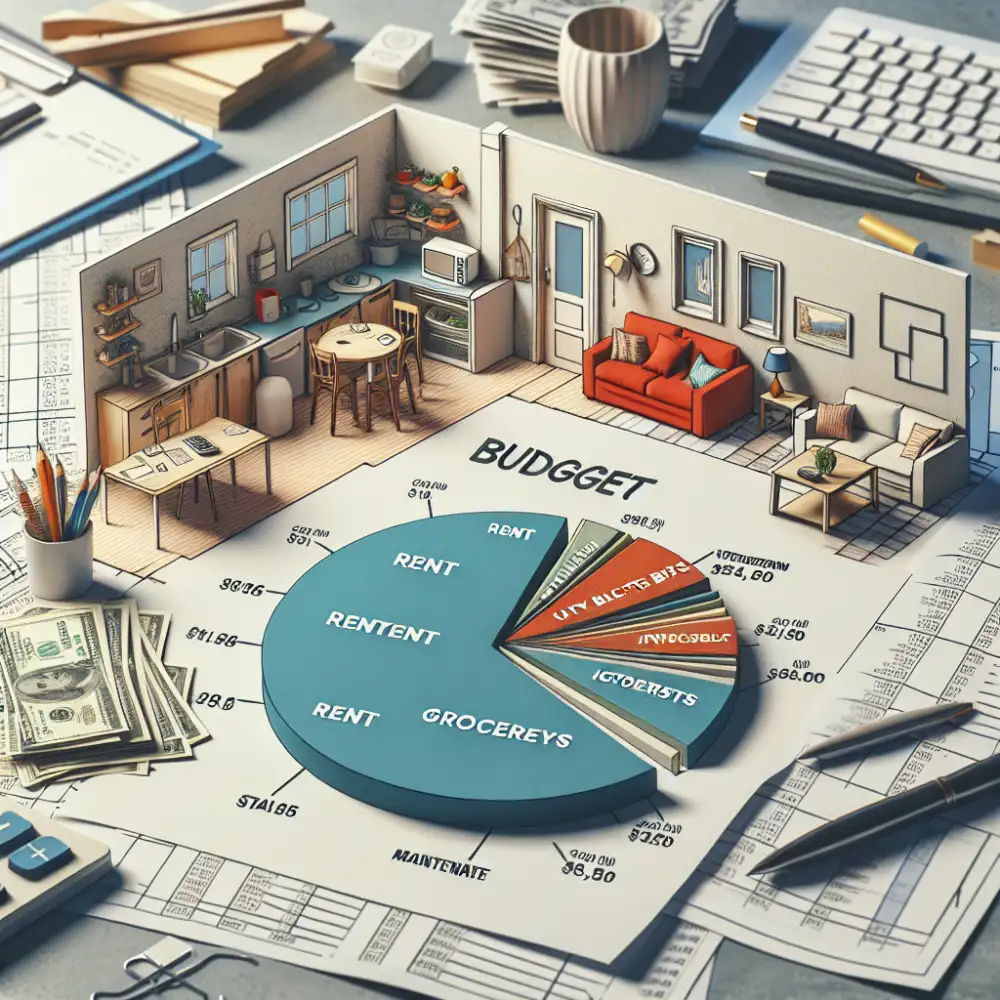Apartment Budgeting 101: What Expenses To Expect?

Monthly Rent
The biggest chunk of your budget when renting an apartment will be dedicated to monthly rent. This isn't just the advertised rental rate, though. Be sure to factor in:
Base Rent: This is the starting point and covers the cost of the apartment itself.
Additional Occupants: Some landlords charge extra if more than one person lives in the unit.
Pets: Expect pet rent or deposits, especially for dogs.
Parking: If a parking spot isn't included, budget for a monthly parking fee.
Don't forget to clarify what's included in your rent. Does it cover utilities like water, trash, gas, or electricity? If not, you'll need to budget for those separately. It's also wise to factor in potential rent increases when planning your long-term budget.
"When budgeting for an apartment, remember to factor in not just the glamorous stuff like furniture and decor, but also the mundane yet essential costs like renter's insurance and even light bulbs!"
Clementine Bradbury
Utilities
When you are renting an apartment, utilities can take a significant chunk out of your monthly expenses. These are the essential services that keep your apartment functional and comfortable. It is crucial to factor them into your budget to avoid unpleasant surprises and potential late fees.
The most common utilities include electricity, gas, water, and sewer. Electricity powers your lights, appliances, and electronics. Gas is often used for heating your apartment and hot water, although some places might use electricity for these purposes. Water covers your drinking, cooking, and showering needs, while sewer handles the wastewater disposal.
In some cases, your rent might include some or all of these utilities. However, it's more common for renters to be responsible for setting up and paying for their own utility accounts. The cost of these utilities can vary widely depending on your location, the size of your apartment, and your usage habits.
Besides these basic utilities, you might also want to consider internet and cable TV as part of your apartment budget. While not strictly essential like the others, internet access is practically a necessity in today's world. Cable TV, while optional, provides entertainment and can be bundled with internet services for a lower combined cost.
When budgeting for utilities, it's best to research the average costs in your area and for your apartment size. You can contact local utility providers for estimates or ask the previous tenant if possible. It's also wise to factor in potential fluctuations in usage and costs throughout the year, like higher electricity bills during summer due to air conditioning.
Remember, being aware of your utility expenses and incorporating them into your budget is crucial for successful and stress-free apartment living.

Groceries
Groceries are a major expense for anyone, but especially for renters who are often trying to save money. It's important to budget for groceries realistically so you don't end up overspending.
One of the best ways to save money on groceries is to plan your meals in advance. This way, you can buy only the ingredients you need and avoid impulse purchases. You can also save money by cooking at home more often. Eating out is expensive, so cooking at home is a great way to cut costs.
When you are grocery shopping, be sure to compare prices and look for sales. You can often find great deals on groceries if you take the time to shop around. Also, don't be afraid to buy generic brands. Generic brands are often just as good as name brands but cost significantly less.
Here are some additional tips for saving money on groceries:
Buy in bulk when possible.
Take advantage of coupons and discounts.
Grow your own herbs and vegetables.
Pack your lunch for work or school.
Drink water instead of soda or juice.
By following these tips, you can save money on groceries and stay within your budget.
Transportation
Transportation is a significant factor to consider when budgeting for an apartment. The cost can vary greatly depending on factors like proximity to work, access to public transportation, and personal transportation choices.
If you own a car, factor in expenses such as car payments, insurance, gas, and maintenance. These costs can fluctuate, so research average gas prices and parking fees in your area. Parking can be a significant expense in some cities, so inquire about monthly parking options near your potential apartment.
Public transportation can be a budget-friendly alternative to owning a car. Research the availability and cost of public transportation options like buses, trains, or subways in your area. Calculate the monthly or annual cost of passes or fares to determine if it fits your budget.
Consider alternative transportation methods like biking or walking, especially if you live close to work or amenities. These options can save you money on transportation and contribute to a healthier lifestyle.
When choosing an apartment, consider its proximity to your workplace, school, or frequently visited places. A well-located apartment within walking or biking distance can significantly reduce your transportation expenses.
Factor in the cost of occasional transportation needs like taxis, ride-sharing services, or rental cars. These options can be helpful for errands, social outings, or emergencies.
By carefully evaluating your transportation needs and exploring different options, you can create a realistic transportation budget that aligns with your overall apartment living expenses.
Insurance
One often overlooked but crucial aspect of renting an apartment is insurance. It's not just about protecting your belongings, but also about safeguarding yourself financially. Renters insurance typically covers:

Personal Property: This covers your belongings like furniture, electronics, and clothing against perils such as theft, fire, or vandalism. The coverage amount varies, so assess the value of your possessions to determine how much coverage you need.
Liability Protection: If someone gets injured in your apartment and you're found liable, liability coverage helps cover their medical expenses and any legal fees.
Additional Living Expenses: If your apartment becomes uninhabitable due to a covered event, this coverage helps pay for temporary housing and other living expenses.
When budgeting for renters insurance, consider factors like coverage limits, deductibles, and any additional coverage options you might need. It's wise to get quotes from multiple insurance providers to compare rates and coverage. Remember, renters insurance offers significant financial protection for a relatively small monthly cost, making it a worthwhile investment for any renter.
Entertainment
While sticking to a budget is essential, your entertainment needs shouldn't be neglected. Living within your means doesn't mean living without joy.
Streaming Services: Choose one or two streaming platforms that offer your favorite shows and movies. Consider rotating services periodically to explore different options and save money.
Free Activities: Take advantage of free or low-cost entertainment options in your city. Explore local parks, attend community events, visit museums on free admission days, or have a picnic with friends.
Social Gatherings: Instead of expensive outings, host potluck dinners or game nights at your apartment. This allows you to socialize without breaking the bank.
Hobbies: Dedicate time to affordable hobbies like reading, painting, writing, or learning a new skill online. Libraries offer a wealth of free resources, including books, audiobooks, and online courses.
Dining Out: Limit restaurant meals to special occasions and explore affordable dining options like happy hour deals or ethnic restaurants. Cooking at home is significantly cheaper and allows you to control your portion sizes and ingredients.
Remember, entertainment is about enjoying yourself without overspending. By being resourceful and making conscious choices, you can have fun and stay within your budget.
Savings Goals
Saving is crucial when renting an apartment. Here are some financial goals to consider:
Emergency Fund: Aim for 3-6 months' worth of living expenses in an emergency fund. This fund covers unexpected costs like medical bills or job loss, preventing you from dipping into rent money.

Security Deposit: Most landlords require a security deposit equal to one or two months' rent. Start saving early to have this amount ready when you sign the lease.
Moving Expenses: Factor in costs like hiring movers, renting a truck, or transportation.
Furniture and Appliances: If you need furniture or appliances, start saving for them in advance.
Decor and Personal Touches: Allocate a portion of your savings for decorating and personalizing your space.
Future Rent Increases: Rent prices tend to rise over time. Save a little extra each month to stay ahead of potential increases.
Long-Term Goals: Continue saving for other financial goals, such as buying a home, investing, or retirement.
By setting clear savings goals, you can ensure a smoother transition into your new apartment and build a solid financial foundation. Remember to track your progress and adjust your savings plan as needed.
Unexpected Expenses
One of the biggest mistakes renters make is only budgeting for their rent payment. It's easy to forget about things like renter's insurance, parking, utilities, and internet service. These costs can add up quickly, so it's important to factor them into your budget.
Don't assume every apartment includes utilities. Some landlords include water or trash removal in the rent, while others don't. Ask about average utility costs for similar units. This will give you a better idea of what to expect.
You'll also want to factor in the cost of moving your belongings. If you don't own a truck, you'll likely need to hire movers or rent a truck. Don't forget about smaller expenses like packing supplies.
If you have a pet, there may be pet fees or deposits. These can vary depending on the landlord and the type of pet you have. Some apartments have move-in fees or require the first and last month's rent upfront. Make sure you understand all the costs associated with renting an apartment before you sign a lease.
Creating a realistic budget will help you avoid financial stress. It's always better to err on the side of caution and overestimate your expenses. This will help you avoid going into debt. Don't forget about unexpected costs. It's a good idea to have an emergency fund to cover these expenses.
Published: 22. 06. 2024
Category: finance



